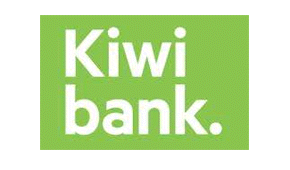
State-controlled Kiwibank has seen its credit rating downgraded by both Moody's and Standard & Poor's in the wake of last year's ownership reshuffle, but the ratings outlook for the bank is now given as stable.
S&P even says it would likely raise the ratings on Kiwibank over the next two years "if we believe the bank has largely overcome the operational risks associated with its core banking replacement project and the bank's risk or growth appetite does not become significantly more aggressive, particularly in light of the broader group's new shareholders".
The bank was previously wholly owned by Crown enterprise NZ Post, but recently New Zealand Super Fund 25% and ACC 22%, bought in.
Moody's has downgraded Kiwibank Limited's long-term issuer and deposit ratings to A1 from Aa3. Under Moody's ratings definitions, obligations rated Aa are judged to be of "high quality and are subject to very low credit risk", while those obligations rated A are judged to be "upper-medium grade and are subject to low credit risk".
Moody's has also downgraded the bank's long-term Counterparty Risk Assessment to Aa3(cr) from Aa2(cr), and downgraded its Adjusted Baseline Credit Assessment to baa2 from aa3.
Kiwibank's short-term issuer and deposit ratings were confirmed at P-1 while the short-term Counterparty Risk Assessment was also confirmed at P-1(cr).
Moody's said as the removal of the guarantee would only apply to obligations incurred after February 28, 2017, Kiwibank's Aa3 Backed Senior Unsecured debt and (P)Aa3 Backed Senior Unsecured MTN Program ratings - which represent senior unsecured obligations incurred on or before Feb 28 and therefore will continue to benefit from the guarantee -- were not included in its review.
S&P has lowered the long-term issuer credit rating on Kiwibank to 'A' from 'A+', and affirmed the short-term issuer credit rating at 'A-1'.
It also affirmed the 'A+' rating on the outstanding long-term debt issued by Kiwibank during the guarantee period and the 'BB+' rating on Kiwibank's nondeferrable subordinated debt, and the 'BB+' and 'BB-' ratings respectively on nondeferrable subordinated debt and perpetual capital notes issued by the bank's affiliate company Kiwi Capital Funding Ltd.
S&P said its Kiwibank rating reflected an assessment that the bank is highly likely to receive extraordinary support from the New Zealand government, if needed.
"This is because we consider that Kiwibank plays an important role to the New Zealand government and that the bank has a very strong link to the government as a result of its indirect ownership by the government. We believe that a default or a stress event relating to Kiwibank could have an important impact on the country's banking system, and consequently, the economy.
"Kiwibank is the largest non-Australian owned bank providing largely retail banking services to New Zealanders. Kiwibank accounts for a meaningful 7% of household deposits in New Zealand.
"We consider that Kiwibank's link to the New Zealand government remains very strong because the New Zealand government remains an important controlling shareholder of the bank, despite the sale of a 47% share of the bank by New Zealand government-owned NZ Post.
"We note that the new shareholders of Kiwi Group Holdings Ltd.--the New Zealand Superannuation Fund (25% ownership) and the Accident Compensation Corp. (22%)--also belong to the New Zealand government-related group of entities.
"As such, we consider that Kiwibank remains ultimately owned by the New Zealand government. We also believe that the removal of the [NZ Post] guarantee is not an indicator of an imminent privatisation of the bank over the next five years."
Moody's said the downgrade of Kiwibank's rating was "a direct result" of the removal of the New Zealand Post guarantee, "which we believe has introduced some uncertainty about the potential for parental support".
The agency pointed out, however that Kiwibank will continue to benefit from a very high likelihood of government support, given that it will remain indirectly owned by the government.
"Kiwibank's position as the key domestic player in the New Zealand banking system and its position as a government-owned bank also support Moody's view that there is a very high probability that it will receive government support -- via its government-owned shareholders -- in case of need," Moody's said.
"The New Zealand government has also provided a NZ$300 million uncalled capital facility to Kiwibank's owners, for the express purpose of supporting the bank in case of need. The facility will remain in place for 10 years, after which the government will review whether it is still required. The government must provide five years of advance notice before terminating the facility."
Kiwibank recently reported an 11%* reduction in half-year net after-tax profit to $63 million, citing funding pressures, continued investment in the bank’s infrastructure, and to a lesser extent the Kaikoura earthquake as reasons for the fall.
How credit ratings relate between the various authorised raters is set out here.

We welcome your comments below. If you are not already registered, please register to comment
Remember we welcome robust, respectful and insightful debate. We don't welcome abusive or defamatory comments and will de-register those repeatedly making such comments. Our current comment policy is here.